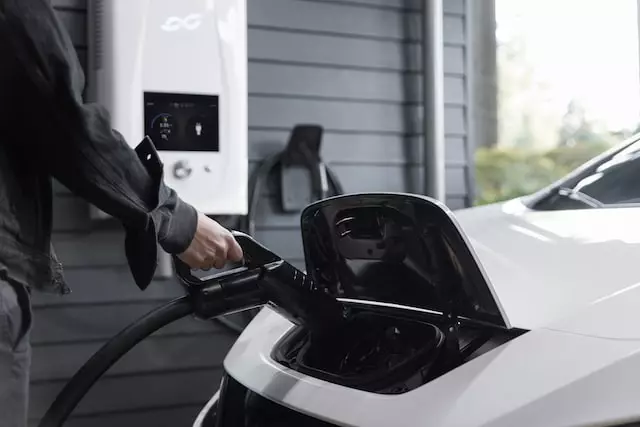6 Pros and Cons of Electric Cars
“We still see that people don’t really realize that electric cars are here right now. And when we show up with an actual vehicle, and you see it drive away under its own power, it’s still kind of a jaw-dropping moment for a lot of people.”__ Franz Von Holzhausen
Eclectic is now a very known term and more commonly known as smart cars. Basically when the world came to realize that the amount of vehicle users has increased and so is the effect on the environment due to carbon combustion. They tried to find new better ways for solving this problem. New materials and new forms of oil and machinery to replace this factor.
An electric vehicle (EV) is a type of vehicle that is powered by an electric motor instead of a gasoline engine. EVs use electricity stored in a battery pack to power the motor, which drives the wheels of the vehicle. This is in contrast to traditional internal combustion engine (ICE) vehicles, which use gasoline to power the engine and produce emissions that contribute to air pollution and climate change.
There are several types of EVs, including all-electric vehicles (AEVs), which are powered solely by electricity, and hybrid electric vehicles (HEVs), which have both an electric motor and a gasoline engine and can switch between the two. Plug-in hybrid electric vehicles (PHEVs) are a type of HEV that can be charged by plugging them into an external electric power source, while hybrid electric vehicles (HEVs) rely on their gasoline engine to generate electricity for the electric motor.

We will discuss the advantages and disadvantages of electric vehicles.
Pros of Electric Vehicles
Zero Carbon Emissions
The primary benefit of EVs is they have absolutely zero carbon emissions. This makes them an environmentally friendly transportation option, as they do not contribute to air pollution and climate change like ICE vehicles do. EVs do not produce greenhouse gases like carbon dioxide, which are a major contributor to global warming. They also do not produce other harmful emissions like nitrogen oxides and particulate matter, which can have negative impacts on human health.
Lower Operating Costs
EVs tend to be more energy-efficient than ICE vehicles, which means that they can save drivers money on fuel costs. In many countries, electricity is less expensive than gasoline or diesel, so operating an EV can be cheaper than driving an ICE vehicle. Additionally, EVs have fewer moving parts and require less maintenance, which can also help to reduce operating costs.
Smooth and Noise-free Performance
EVs are much quieter than ICE vehicles, which can be a benefit in urban areas where noise pollution is an issue. This can make them more pleasant to drive, particularly in residential neighborhoods or in areas where there are noise restrictions. Many EVs offer quick acceleration and smooth, quiet operation, which can be a pleasant driving experience. The electric motor in an EV delivers maximum torque from a standstill, which means that it can accelerate quickly. This can be particularly useful in stop-and-go traffic or when merging onto a highway.
Is Wind Energy the Answer? Pros and Cons of Wind Energy
Less Need for Fossil Fuels
EVs are powered by electricity, which can be generated from a variety of sources, including renewable energy sources like solar and wind. This can help to reduce our dependence on fossil fuels, which are a finite resource and a major contributor to climate change. By using renewable energy sources to charge EVs, we can significantly reduce our carbon footprint and contribute to a more sustainable future.
Improved Air Quality
Because they produce zero emissions, EVs can help to improve local air quality and reduce the negative health impacts of air pollution. Pollution from ICE vehicles is a major contributor to air pollution, which can have serious health consequences, including respiratory problems and heart disease. By reducing the number of ICE vehicles on the road and replacing them with EVs, we can improve air quality and the overall health of communities.

Long Driving Range
Many newer EVs have a driving range of more than 300 miles on a single charge, which means that they can be used for long trips as well as short ones. This can make them a practical option for a wide variety of driving needs. In many cities and towns, there are public charging stations available for use by EV drivers. This can make it easier to charge your EV while on the go and can help to reduce range anxiety – the fear of running out of power while driving.
Cons of Electric Vehicles
While electric vehicles (EVs) have many advantages over internal combustion engine (ICE) vehicles, they also have some disadvantages that should be considered. Here are some of the main drawbacks of EVs:
Initial Assembling Cost
One of the main disadvantages of EVs is that they tend to be more expensive to purchase than ICE vehicles. The initial cost of an EV can be higher due to the cost of the electric motor, battery pack, and other specialized components. However, the higher upfront cost may be offset by lower operating costs, as EVs are typically more energy-efficient and require less maintenance than ICE vehicles.

Limited Driving Range
Some EVs have a limited driving range compared to ICE vehicles, which can be a concern for drivers who need to travel long distances. While newer EVs have driving ranges of more than 300 miles on a single charge, this may not be sufficient for some drivers. This issue, known as “range anxiety,” can be a barrier to adoption for some people. In some areas, there may be limited charging infrastructure available for EVs.
This can make it more difficult to find a place to charge your vehicle, particularly when you are away from home. However, as the popularity of EVs grows, more charging stations are being installed, which is helping to alleviate this issue.
Charging Time:
It can take several hours to charge an EV, depending on the type of charger being used and the battery capacity of the vehicle. This can be a disadvantage for drivers who need to charge their vehicle quickly, as it may not be possible to fully charge the battery in a short period of time.
While EVs are powered by electricity, which can be generated from a variety of sources, they do rely on the electric grid to function. This means that they are dependent on the availability and reliability of electricity, which can be affected by natural disasters and other disruptions.
Battery Disposal
As EVs rely on a large battery pack to store electricity, there is a concern about what will happen to these batteries when they reach the end of their useful life. Proper disposal of EV batteries is important to ensure that they are disposed of safely and in an environmentally responsible manner.
The Shocking Truth: What Will Happen without Electricity?
Limited Cargo Space
Some EV models may have limited cargo space due to the placement of the battery pack and other components. This can be a disadvantage for drivers who need to carry a lot of cargo or who frequently transport large items.
Public Perception
Despite the many advantages of EVs, there is still a perception among some people that they are not as reliable or practical as ICE vehicles. This can be a barrier to adoption for some consumers, who may be hesitant to switch to an EV due to concerns about range, charging infrastructure, and other issues.
Conclusion
EVs offer many advantages over ICE vehicles, including zero emissions, lower operating costs, quiet operation, good performance, reduced dependence on fossil fuels, government incentives, improved air quality, reduced maintenance, long driving range, etc. The suitability of an EV for an individual’s needs will depend on their driving habits, budget, and other factors. It is important to carefully weigh the pros and cons of EVs before making a decision about whether to switch to this type of vehicle.
Are EVs Better for the Environment than Gasoline Cars?
Frequently Asked Questions
What are electric cars?

Electric cars are vehicles that are powered by electricity rather than gasoline or diesel fuel. They use an electric motor to convert stored energy from a battery into motion, which allows them to run without emitting any pollutants.
What are the pros of electric cars?
Some of the pros of electric cars include that they produce zero emissions, they have lower operating costs compared to traditional gasoline-powered vehicles, they are quiet and smooth to drive, and they can help to reduce reliance on fossil fuels.
What are the cons of electric cars?
Some of the cons of electric cars include that they have a limited range compared to gasoline-powered vehicles, they have a higher upfront cost, they may not be suitable for long-distance travel, and they may not be available in all locations.
Are electric cars environmentally friendly?
Yes, electric cars are generally considered to be environmentally friendly because they do not produce any emissions during operation. This means that they do not contribute to air pollution or climate change.
Are electric cars cheaper to operate than gasoline-powered vehicles?
In general, electric cars have lower operating costs compared to traditional gasoline-powered vehicles. This is because they have lower fuel costs and typically require less maintenance. However, their upfront cost may be higher, which can offset some of the long-term cost savings.
How long do electric car batteries last?
The lifespan of an electric car battery depends on a variety of factors, including the type of battery, the driving habits of the owner, and the age of the battery. Most electric car batteries are designed to last for at least 8 years or 100,000 miles, although some may last longer.
Can electric cars be charged at home?
Yes, electric cars can be charged at home using a standard household outlet or a dedicated charging station. The time it takes to charge an electric car depends on the size of the battery and the power of the charging station.
Are electric cars suitable for long distance travel?
Electric cars may not be suitable for long distance travel due to their limited range compared to gasoline-powered vehicles. The range of an electric car is typically measured in miles and can be affected by factors such as the age of the battery, the driving conditions, and the use of heating or air conditioning.
Some electric cars have a range of over 200 to 300 miles, while others may have a range of only 100 miles or less. It is important to consider the range of an electric car when deciding whether it is suitable for long distance travel.
